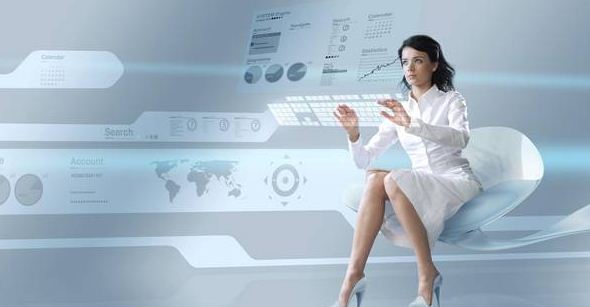Perceptual Computing, How Will Future Technology ?
Perceptual Computing, How Will Future Technology - Phones with high definition screens, more girls and laptops, smart homes. The advancement of technology accustomed us to always expect something else. What's next.
More and more girls and portable phones with high definition computer screens and more technical gadgets, smart homes. The advancement and development of technologies always accustomed us to expect something else, something new, something superador. The "old" becomes just another step in the gradual move towards the "future".
Perceptual computing is a key concept: it is named for the extension of the senses of every person on your computer. "This refers to the computers of the future will have new human interfaces via touch technology, facial recognition and voice interactions based on gestures," explains Cecilia Entremujeres Nanni, a spokeswoman for Intel. What is the OBJETIVE? "That the use of PCs become more intuitive to improve interaction with people."
Some of these devices are already in our country, such as "convertible" Ultrabooks (with dual screens, folding, rotating, etc.) and sensitive to touch (touch). By the end of 2013, has Nanni even be able to recognize the user's face, avoiding having to remember passwords and leverage their personal characteristics to interact with the device.
Currently, an average person goes online between five and eight hours a day, 54% of people seeking daily connectivity and, according to Intel, it is estimated that by 2020 there will be 25,000 million connected smart devices.
Beyond PCs, they are being developed numerous devices with the same capabilities as these, but more intelligent, intuitive, context-aware and user-centric functions, which is called "embedded technology". In this sense, Cecilia ahead of us some of the applications that come Intel:
- Intelligent Virtual Tester. The prototype of the "Magic Mirror" ( "Magic Mirror") is a screen that serves as the mirror of a business; except that, instead of a reflective surface, there is a high-resolution display capable of identifying the size and measures who is to it. Thus, it creates a 3D avatar that responds to real-time movements of the person.
Only gestures, the user will be able to select clothes and try it on your avatar in 3D, riding looks and choose pieces before going to a physical tester. This development is creating a new shopping experience in retail and allows people to experience a large catalog of clothing more quickly and comfortably.
- Home Energy Management System (HEMS). The control panel home energy, with an Intel Atom processor energy efficiently allows owners to control the use of power of the connected devices. They also help encourage new habits to reduce energy consumption and control costs. The custom configuration allows the user to modify the thermostat temperature, turn off appliances or the home security system.
- Infotainment car. are all digital applications that can be used by all occupants of a vehicle based on Intel Atom processors. The infotainment system onboard the driver connects to the Internet and other electronic devices inside the vehicle. The system includes navigation functions; but it can also display real-time information, such as engine diagnostics, weather and traffic updates and more.
- Medicine. Intelligent diagnostic tools allow physicians to technicians transmit patient data to physicians at a regional medical center for analysis. This means bring advanced medical services to people in remote areas where there are no laboratories or even doctors. In areas of the world with limited access to health care access, this technology (as kits equipped with USB and connected to analyze blood samples devices cameras portable microscope) can improve the lives of millions of people, while helping medical authorities identify and potentially control the spread of infectious diseases.


Post a Comment for "Perceptual Computing, How Will Future Technology ?"